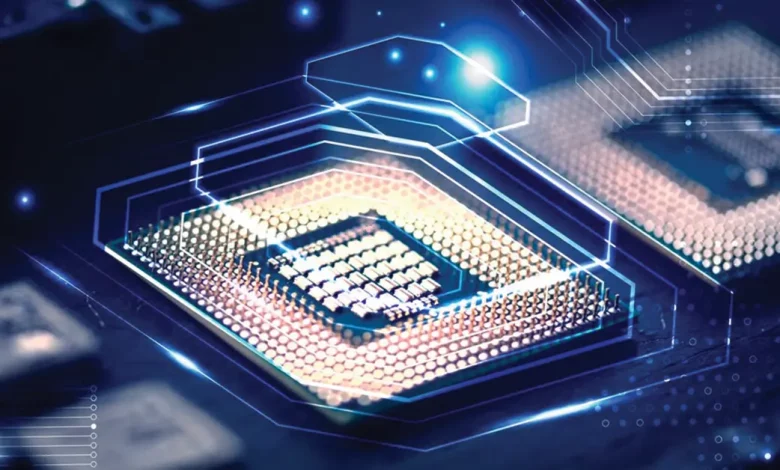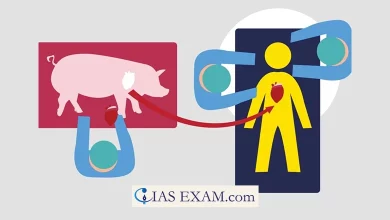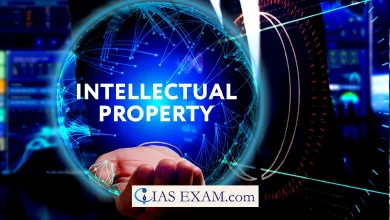
Context- Quantum computing has recently gained a significant interest in the past decade for its applications in several fields.
About Computing:
- A bit (binary digit) is the smallest piece of information storage in computing. Often, a huge number of bits is required to convey meaningful facts.
- In a computer, a bit is a physical gadget with effortlessly discernible configurations, or states –e.g. high and low voltage.
- These physical bits are beneficial to symbolize and technique expressions that involve 0s and 1s: for instance, low voltage can represent zero and high voltage can represent 1.
- A gate is a circuit that modifications the states of bits in a predictable manner. The speed at which these gates work determine how fast a computer functions.
Quantum computing
- Quantum computing is a progressive computing paradigm using the ideas of quantum mechanics to carry out calculations.
- Unlike classical computers that depend upon bits (zero or 1), quantum computer systems harness qubits that may exist in a state of superposition (both 0 and 1 simultaneously).
- For example, to carry out one calculation that requires sixteen special inputs, a classical computer requires a total of four bits and 16 computations.
- But with 4 qubits in superposition, a quantum computer should generate solutions similar to all 16 inputs in a single computation.
- This unique property allows them to perform certain calculations exponentially faster than classical computers, opening doors to groundbreaking advancements in various fields.
Applications
- Drug discovery: Simulating complex molecules to develop new drugs and materials, leading to accelerated medical innovation.
- Financial modeling: Optimizing economic portfolios and managing risk with unparalleled accuracy and speed.
- Cryptography: Breaking present encryption strategies and growing new, quantum-resistant ones.
- Machine learning: Revolutionizing AI via education algorithms on large datasets tons faster, leading to breakthroughs in natural language processing, computer vision, and more.
- Materials science: Designing novel materials with advanced homes like excessive-temperature superconductors or efficient solar cells.
Challenges
- Hardware obstacles: Qubits are fragile and prone to errors, making it difficult to build large, stable quantum computers.
- Software development: Quantum algorithms are fundamentally unique from classical algorithms, requiring specialised programming languages and techniques.
- Cost and accessibility: Current quantum computers are expensive and often not accessible to the general public or even smaller research institutions.
- Security worries: The power of quantum computers poses potential threats to present encryption techniques, necessitating improvement of quantum-resistant cryptography.
Measures
- Investing in research and development: Governments and private companies are pouring sources into advancing quantum hardware and software program technologies.
- Developing error correction techniques: Robust techniques for mitigating qubit mistakes are critical for building dependable quantum computers.
- Building quantum ecosystems: Creating structures and tools to make quantum computing more on hand and user-friendly for builders and researchers.
- Addressing protection concerns: Collaborating on global standards and protocols for quantum-resistant cryptography to ensure secure communication in the future.
Initiatives by the Government of India
- National Mission on Quantum Technologies and Applications (NM-QTA): The Government of India introduced a countrywide venture in the Union Budget of 2020 with a proposed budget of 8000 crores masking all areas of quantum technology.
- It is extensively divided into 4 verticals:
- Quantum Computing & Simulations,
- Quantum Communications,
- Quantum Sensing & Metrology, and
- Quantum Material & Devices.
- Quantum Computing Applications Lab (QCAL): A joint initiative via the Ministry of Electronics and Information Technology (MeitY) and Amazon Web Services (AWS), established in 2023. QCAL provides researchers and developers with access to cloud-based quantum computing resources for experimentation and application development.
- Quantum-enabled Science and Technologies (QuEST): Department of Science and Technology (DST) supports studies initiatives and collaborations in quantum computing through diverse funding programs like QuEST.
- I-HUB Quantum Technology Foundation (I-HUB QTF): Department of Science and Technology (DST) also set up the I-HUB QTF with participation from research institutions like IISER Pune to foster improvement and commercialization of quantum technology.
Conclusion
- Quantum computing holds immense capacity to revolutionize numerous industries and clear up great demanding situations going through humanity.
- While we remain within the early stages of this technology, sustained efforts to cope with the existing hurdles are paving the way for a future wherein quantum computer systems liberate exceptional possibilities throughout diverse fields.
Source: The Hindu
Practice question:
Q. What is a cubit in the context of quantum computing?
- A type of classical bit
- A unit of information in quantum physics
- A quantum processor
- A programming language for quantum computers





.png)



